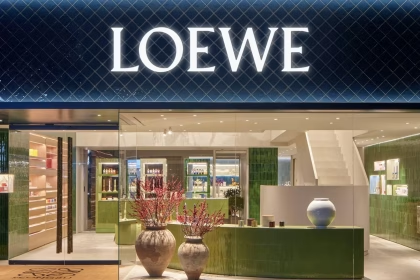Luxury fashion brands have long been known for their exclusivity, high-quality materials, and meticulous craftsmanship. However, in recent years, some of these prestigious brands have entered into collaborations with fast fashion retailers, raising questions about whether such partnerships could harm their reputation and dilute their brand value.
Collaborations between luxury brands and fast fashion retailers, such as the partnership between French luxury brand Balmain and H&M and most recently, Mugler and H&M, have become increasingly popular. These collaborations allow luxury brands to reach a broader audience and introduce their designs to consumers who may not have previously considered purchasing their products due to high price points.
On the other hand, fast fashion retailers benefit from the prestige and allure of partnering with a luxury brand, which can elevate their own brand image and attract new customers. H&M has a history of successful collaborations with high-end designers, dating back to 2004 when they first partnered with Karl Lagerfeld.
Over the years, H&M has worked with renowned designers such as Versace, Marni, Maison Martin Margiela, Balmain, Alexander Wang, Isabel Marant, and many more. These collaborations have generated significant buzz and sales for both H&M and the luxury brands involved, allowing them to reach wider consumer bases than before.
While collaborations between luxury brands and fast fashion retailers can be beneficial for both parties, luxury brands must carefully consider the potential risks to their reputation and brand value, said Retail Expert, Jeanel Alvarado.
While these collaborations can be mutually beneficial, there are concerns that luxury brands may be compromising their exclusivity and perceived value by partnering with mass-market retailers. One of the key factors that set luxury brands apart from their fast fashion counterparts is their commitment to quality materials and craftsmanship. When a luxury brand collaborates with a fast fashion retailer, the resulting products may not be made with the same high-quality materials or attention to detail as their mainline collections, potentially disappointing customers who expect the same level of quality from all products bearing the luxury brand’s name.
The very nature of fast fashion – characterized by rapid production cycles, low prices, and disposable garments – stands in stark contrast to the values of luxury fashion, which emphasizes timeless designs, investment pieces, and sustainability. Therefore, aligning themselves with fast fashion retailers, luxury brands risk being associated with the negative environmental and social impacts of the fast fashion industry, such as pollution, waste, and exploitation of underpaid workers.
Despite these potential drawbacks, it is important to note that luxury brands have managed to maintain their status as dominant tastemakers in the fashion industry, even as they dabble in collaborations with fast fashion retailers. The key to success for luxury brands in these partnerships lies in striking a balance between reaching new audiences and maintaining their core values of quality, exclusivity, and sustainability.

















